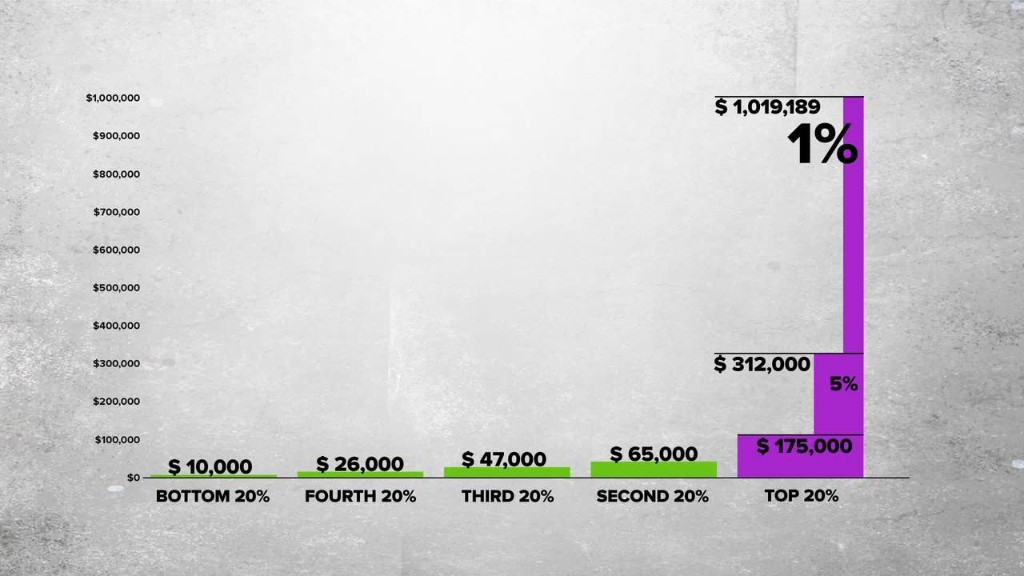
The U.S. and Israel have the worst inequality in the developed world, according to a report from the Organisation for Economic Co-operation and Development.
The OECD found that the gap between rich and poor is at record levels in most of its 34 member countries. But the U.S. and Israel stood out from the pack.
In the U.S., the richest 10% of the population earn 16.5 times the income of the poorest 10%. In Israel, the richest 10% earn 15 times that of the poorest.
That compares with the average ratio of 9.6 times across the OECD.
The income gap has been growing steadily in recent decades. In the 1980s, the rich made about 7 times as much as the poor.
The report also reveals wealth inequality is even more extreme than income inequality.
Data from 2012 shows that among 18 member nations, the top 10% of households controlled half of all wealth, while the bottom 40% owned just 3%.
Based on the top 5%, the U.S. has the widest wealth gap. These households own nearly 91 times the wealth of the average.
Related: Worried about job security? Get used to it
Both the U.S. and Israel have seen inequality grow faster in part because of comparatively low spending on social programs and benefits, said Mark Pearson, the author of the 330-page report. Other countries, such as France, are better at redistributing wealth using taxes and benefits, he said.
Another factor contributing to inequality in the U.S. is a wide skill gap in the workforce. That means highly skilled people can command significantly bigger salaries than low skilled workers.
For example, U.S.-based doctors can make a lot more money than they can in the U.K. and Germany. And low skilled laborers in the U.S. tend to have lower incomes than they would in other countries, said Pearson.
Related: This country has the best minimum wage in the world
Israel also has problems with encouraging women to enter the workforce, which can prevent poor families from getting ahead, said Pearson.
"There's a [long] way to go in Israel to get the female employment rates higher," he said, noting that religious and cultural factors have kept many women at home.
The report shows that having strong female participation in the workforce, and smaller gender pay gaps, can help make a country more equal.
"More women in work really does seem to have an effect on inequality. It reduce[s] inequality," said Pearson.


